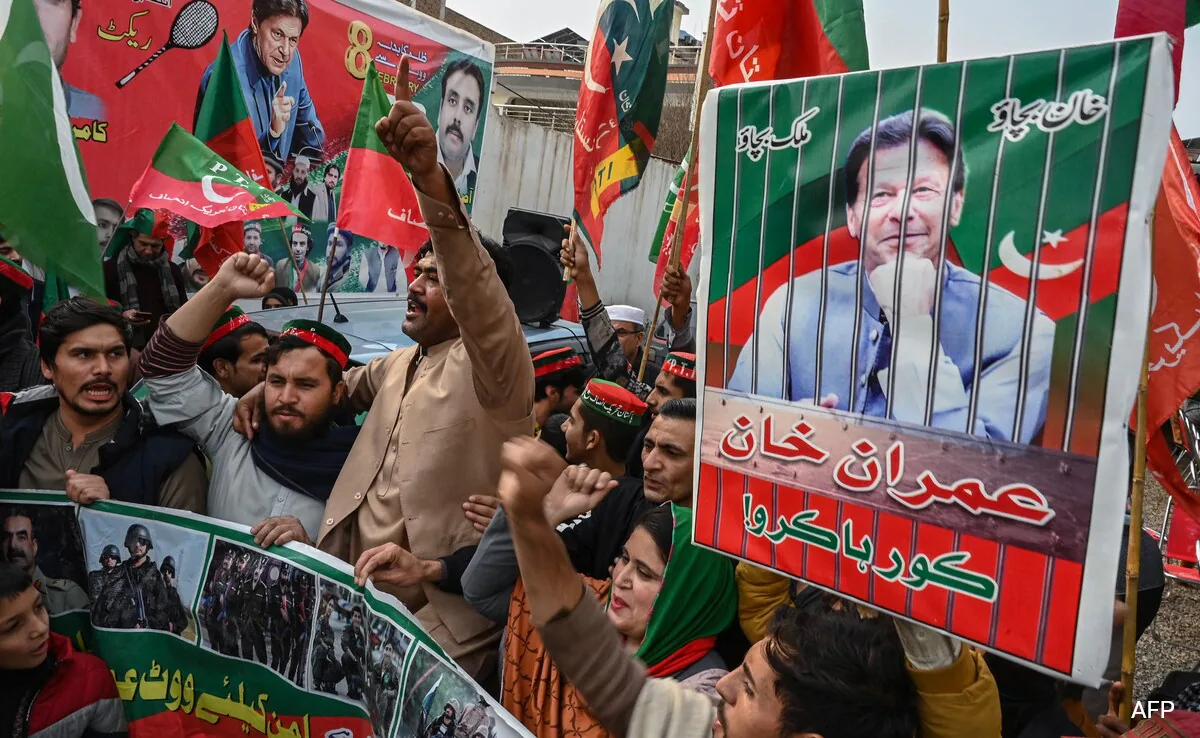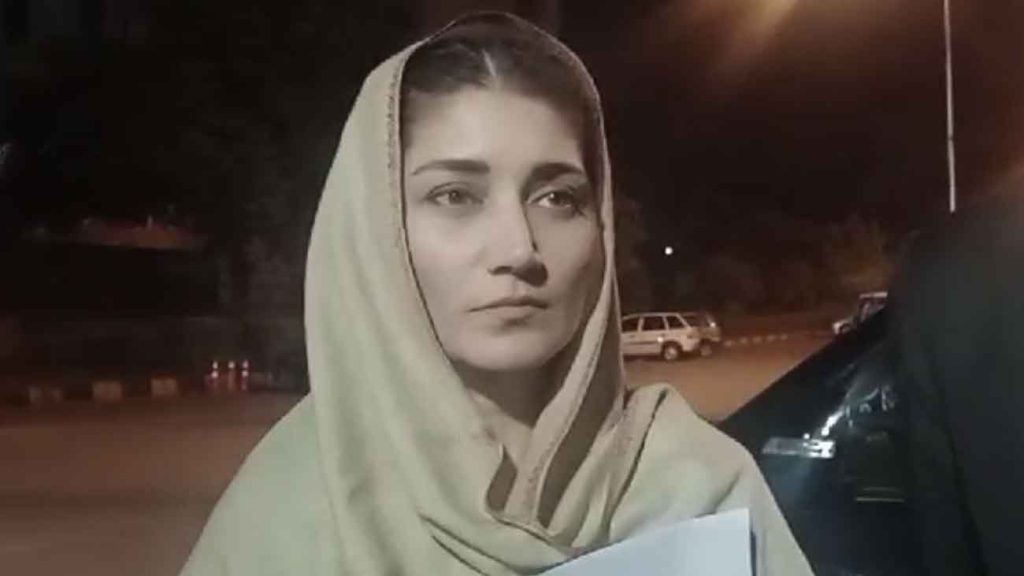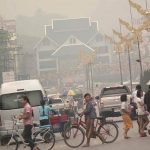Independent candidates linked with jailed Pakistani political leader Imran Khan’s party has allegedly won the most National Assembly seats in Pakistan’s general election, scoring a surprise victory despite a sluggish count and rigging charges.
According to the Election Commission of Pakistan, independent candidates have won 98 seats so far, with 22 seats left uncontested. The majority of independents support Khan’s party, Pakistan Tehreek-e-Insaf.
The Pakistan Muslim League Nawaz (PMLN), expected to dominate the polls, has secured the second-most seats (69). The Pakistan People’s Party (PPP) holds the third-most seats, with 51.
Even if they won all 22 remaining seats, the PMLN, led by former Prime Minister Nawaz Sharif, or the PPP would need a clear lead. Still, none of the country’s three major parties will gain the 169 seats required for a majority in parliament, rendering them unable to form a government independently, leaving it unknown who will be chosen as the country’s next prime minister.
In a Friday speech, an AI-generated avatar of Khan declared victory in the election and urged his followers to “now show the strength of protecting your vote.”
Pakistan’s military elite favours Sharif
Khan, who has been in prison since August, has been utilising artificial intelligence to send messages to fans. “You kept my trust, and your massive turnout has stunned everyone,” the AI voice remarked in the video.
Khan’s opponent, former Pakistani Prime Minister Nawaz Sharif, claimed that his PMLN party had the greatest percentage. He acknowledged that his party lacked the “majority to form a government” and was seeking coalition partners.
Analysts believe the country’s military elite favours Sharif even though one of his mandates ended in a coup. The military previously denied supporting Sharif.
On Friday, violent protests erupted over suspicions of vote manipulation and a lengthy vote count, prompting the Human Rights Commission of Pakistan to warn that the “lack of transparency” surrounding the delay in declaring the results was “deeply concerning.”
At least two people were killed and 24 injured in Shangla, northern Khyber Pakhtunkhwa, amid a clash between workers from Khan’s political party, Pakistan Tehreek-e-Insaf (PTI), and police officials.
A police officer in Shangla told CNN that two protestors were killed when their group threw stones at police. However, Syed Fareen, a PTI-affiliated local candidate, tsaid that the protesters were conducting a peaceful march when police opened fire on them, killing two workers and injuring at least 24.
Analysts attribute the widespread outrage to efforts by the country’s caretaker administration and its powerful military, which has long controlled Pakistani politics, to repress Khan and his followers, including “pre-poll rigging.”
Khan has accused the military of plotting his departure from government in 2022, prompting thousands of his fans to take to the streets in protest. The military and Pakistan’s caretaker government have denied repressing Khan and the PTI.
“This election was, among other things, a referendum on the military’s dominant role in Pakistani politics,” Michael Kugelman, director of the Wilson Center’s South Asia Institute, told CNN. “PTI voters came out in droves to telegraph a message of defiance, that they weren’t going to let the military dictate the outcome of an election that it badly wanted them to lose.”
Election commission “freezes” results
Khan-backed candidate Meher Bano Qureshi, whose father is incarcerated former foreign minister Shah Mahmood Qureshi, said that she was ahead by a large majority until the election commission “froze” the results overnight and denied her access to the returning officer’s office.
It was subsequently announced on Friday that she had lost the Punjab constituency of Multan with what she described as a “historic” amount of rejected ballots, adding that this was “in my opinion, clearly indicative of tampering.”
Foreign nations have expressed worry over involvement in Pakistan’s elections. On Friday, the United States asked for a probe into “claims of interference or fraud” in the poll, with a State Department spokeswoman agreeing with assessments that the elections “included undue restrictions on freedoms of expression, association, and peaceful assembly.”
“We condemn electoral violence and are concerned about allegations of interference in the electoral process,” spokesman Matthew Miller stated.
Thursday’s vote, which has already been delayed for months, comes as the country of 220 million people faces rising challenges, including economic uncertainty and periodic extremist threats, as well as climate disasters that endanger its most vulnerable citizens.
Former cricket star Khan, 71, who was deposed from office amid a controversy, remains imprisoned on several charges and barred from voting against his opponents. The PTI has been barred from using its renowned cricket bat symbol on ballots, a setback to millions of illiterate voters who may use it to vote, while television stations are forbidden from broadcasting Khan’s talks.
Pakistan Marred with Conflict
His longstanding rival, 74-year-old Sharif, a scion of the elite Sharif political dynasty, is attempting to make a stunning political comeback after years of self-exile abroad after being imprisoned on corruption allegations.
Even if the PTI emerges victorious after the vote count, maintaining power in a new government may be difficult.
Court rulings before the election required the party’s candidates to run as independents. “Some of the PTI’s sponsored candidates may align with other parties. Kugelman believes the military will put pressure on them to do so.
Sharif’s PMLN may be able to build a coalition with other parties and exclude the PTI, Kugelman remarked.
If Sharif’s party joins the new government, he will be prime minister for a historic fourth term. On Friday, he struck a conciliatory tone, saying, “All parties should sit together to heal a wounded Pakistan.”
He also emphasised that his party recognised other parties’ mandates, “including independents,” referring to candidates from incarcerated former Prime Minister Khan’s party who could not run under their party name.
Sharif stated that his party “did not want to fight” because “Pakistan could not afford conflict.” He also stated that his party “wanted to improve relations” with Pakistan’s neighbours.
Bilawal Bhutto Zardari, the 35-year-old son of deceased former Prime Minister Benazir Bhutto, is also running, trying to restore his Pakistan People’s Party’s status as a major political force.
Source: CNN









